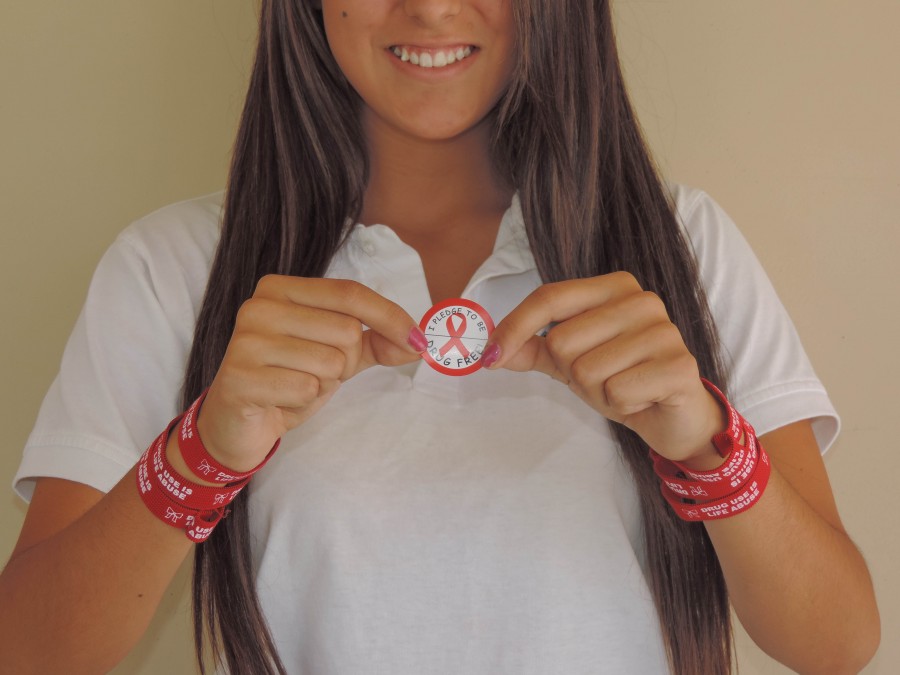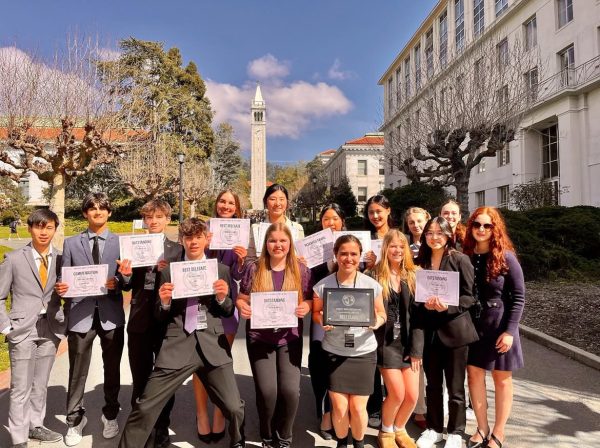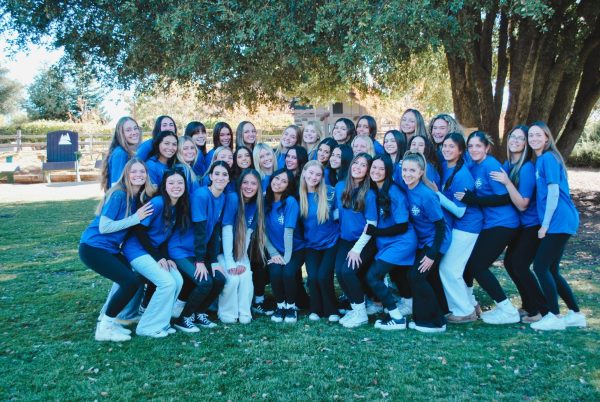Red ribbons tie the knot
Students address the problem of the war on drugs.
“I pledge to be drug free” – Senior Marissa Miraglia takes up the pledge to not do drugs and challenges other students to do the same.
Don’t do drugs. Drugs are bad. Drugs will kill you.
These messages have been repeated to us over and over again since the day we learned what a cigarette was. But as kids, we most remembered not the messages but the red wristbands. With Red Ribbon Week, it is the hope that a conversation about drug prevention would begin.
Every year in October, this week is dedicated to raising drug awareness in schools across the nation: Red Ribbon Week. This year, Red Ribbon Week takes place from Oct. 23-31.
Drug Use Is Life Abuse (DUILA) is the Orange County organization that leads the local awareness campaign. Red Ribbon Week spreads drug education in attempt to decrease and prevent drug use.
One of the programs that DUILA offers is called NextStep. NextStep is high school program (and a service club at SMCHS) that gives students the opportunity to go to middle schools and speak to children about drug abuse prevention.
Red Ribbon Week, a concentrated campaign in the war on drugs, strives to show the negative consequences of drug abuse far outweigh any emotional or social needs that lead students to use drugs.
While it allows people to know the truth behind drugs, it is also a time to “reflect and refocus our principles,” said senior Noelle Kendall, a DUILA board member .
“[Listening to Red Ribbon Week] in high school, kind of brings you back to when you were a kid,” she said. “It’s a universal reminder to everyone. I think it is important to stop and think about it and just acknowledge it is a problem. Each person can think of how they want to address it for themselves.”
Red Ribbon Week also touches on the issue of drug addiction.
Senior Emily Alpert, who has known people that suffered drug addictions, compares heavy drug use to a “broken record.”
“I would remind them that a broken record doesn’t fix itself,” she said. “The sound gets worse and worse until it becomes so piercing that it would be better off on the ground shattered into pieces. I urge these students to fix the broken record before it is too late. Before their drug use gets out of hand, and their life is shattered into a million pieces. Now is the time to fix it, to hear the unaltered, undisturbed music of our lives.”
Once a person opens the door to drug dependence, even the first use can lead to negative results. Junior Abigail Jackson, who also serves on the DUILA board, said “it is important to educate people on the consequences of their actions.”
“It puts you on a bad path that can lead to many more bad decisions,” she said. “Kids think that they are invincible and do not understand the full implications of their actions.”
Red Ribbon Week usually fails to address what the effects on people beyond the individual drug user.
“A decision to use drugs and alcohol is not just your decision, but it affects everyone around you,” Jackson said. “I have seen drugs and alcohol tear families apart because of one person’s selfish decision. The aftermath of those experiences are never positive.”
Families and close friends struggle to help those involved with drugs. Therapy and rehabilitation are often steps taken to repair broken bridges, but nothing can happen until the conversation about drugs starts. Hopefully, with the help of Red Ribbon Week, this conversation starts before the problem even begins.




